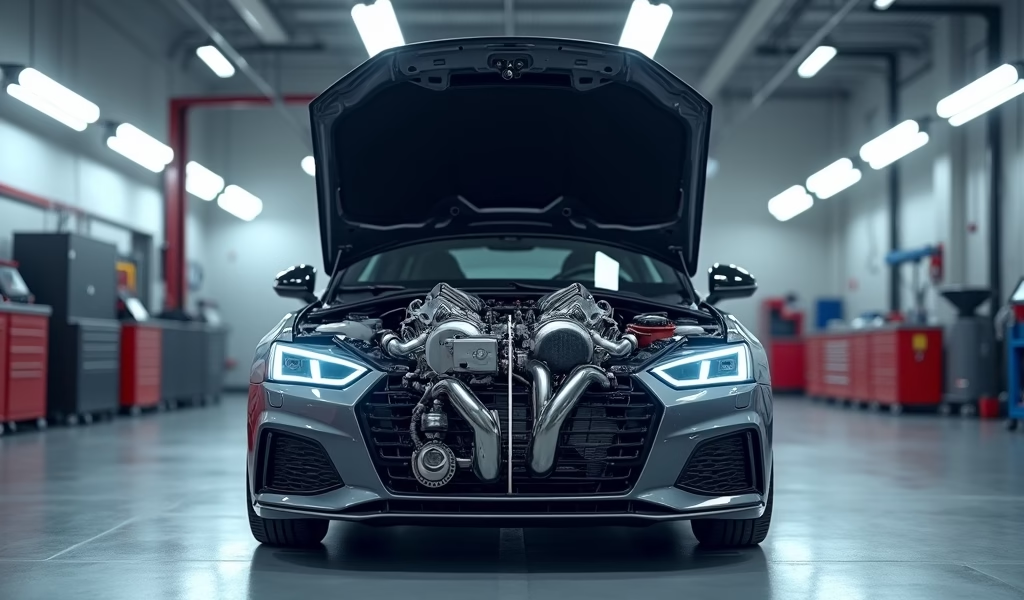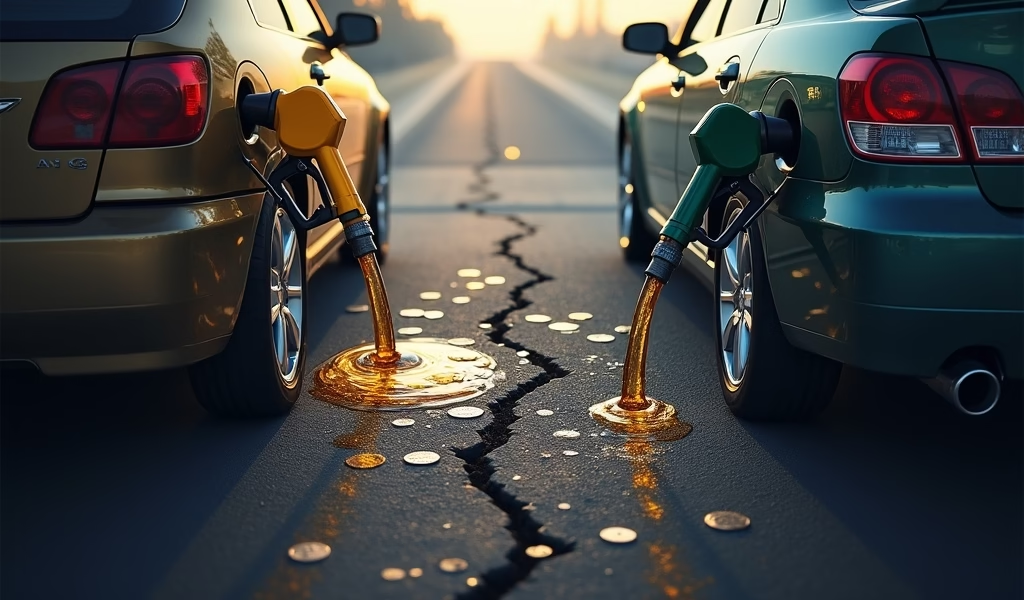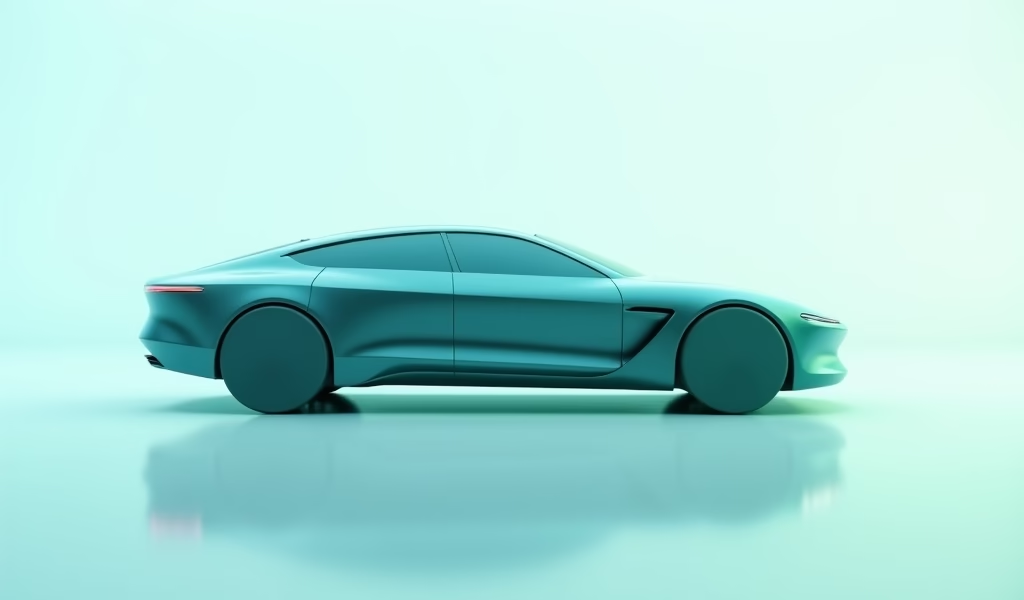Overview
The article compares petrol and diesel engines, explaining their fundamental differences in ignition methods, design, performance, efficiency, environmental impact, and maintenance requirements. Diesel engines offer better fuel efficiency, longevity, and torque at lower RPMs, while petrol engines provide lower upfront and maintenance costs, higher horsepower at higher RPMs, and are better suited for shorter commutes.
Table of Contents
- Understanding Engine Basics: Petrol vs Diesel
- Ignition Methods: The Fundamental Difference
- Fuel Comparison: More Than Just Different Names
- Design Differences: Built for Different Purposes
- Performance Comparison: Torque vs Horsepower
- Efficiency Factors: Why Diesel Often Wins
- Environmental Impact: A Complicated Picture
- Maintenance Considerations: Costs and Longevity
- Cost Analysis: Beyond the Purchase Price
- Modern Developments: Evolving Technologies
- Choosing the Right Engine for Your Needs
- Conclusion: Finding Your Perfect Match
- Frequently Asked Questions
Understanding Engine Basics: Petrol vs Diesel
The difference between petrol and diesel engines goes far beyond just the fuel they consume. As a mechanic with 15 years in the field, I’ve had my hands inside countless engines of both types, and they’re as different as day and night once you get past the surface similarities.
Both are internal combustion engines, yes, but they’re like cousins rather than identical twins. Understanding these differences isn’t just mechanic’s trivia—it directly impacts your wallet, driving experience, and vehicle longevity.
In this comprehensive guide, I’ll walk you through what makes each engine type unique, helping you make informed decisions whether you’re buying a new car, diagnosing a problem with your current vehicle, or simply satisfying your mechanical curiosity.
Ignition Methods: The Fundamental Difference

The most fundamental difference between these engines lies in how they create combustion. In a petrol engine, we use spark plugs to ignite a compressed mixture of air and fuel. It’s a bit like a controlled explosion triggered by an electrical spark.
Diesel engines, on the other hand, rely on compression ignition. They squeeze air so tightly that it heats up tremendously—around 400-500°C. When diesel fuel is injected into this super-heated air, it ignites spontaneously without needing any spark. This higher compression is partly why diesel engines sound and feel different when running.
This fundamental distinction influences everything from engine construction to performance characteristics. When I’m troubleshooting car engine problems, one of the first things I consider is whether I’m dealing with a petrol or diesel system, because their failure points and diagnostic approaches differ significantly.
Fuel Comparison: More Than Just Different Names
Petrol (gasoline) and diesel aren’t just different in name—they have distinctly different properties that affect how engines use them. Diesel fuel is more energy-dense, containing roughly 15% more energy per liter than petrol, which is one reason diesel engines typically offer better fuel economy.
The molecular structure of diesel makes it less volatile but more energy-rich. It’s heavier, oilier, and actually lubricates engine components as it flows through—something petrol doesn’t do. According to research from the U.S. Department of Energy, this difference in energy content is a key factor in diesel’s efficiency advantage.
Interestingly, diesel fuel freezes at lower temperatures than water but higher temperatures than petrol, which is why diesel vehicles can sometimes be harder to start in extremely cold weather. Modern diesels overcome this with glow plugs and advanced fuel heating systems, but it’s still something to consider if you live in a very cold climate.
Design Differences: Built for Different Purposes
Looking inside these engines reveals substantial construction differences. Diesel engines must withstand much higher compression pressures (typically 15:1 to 23:1 versus 8:1 to 12:1 in petrol engines), requiring stronger, heavier components.
This strength requirement isn’t trivial—diesel engine blocks are typically more robust, with stronger pistons, connecting rods, and crankshafts. They’re the heavyweight boxers of the engine world, built to endure tremendous forces with each combustion cycle.
Fuel injection systems also differ significantly. While modern petrol engines often use direct injection, diesel engines have always required sophisticated high-pressure injection systems—sometimes exceeding 30,000 psi in newer common rail systems. These precision components contribute to diesel engines’ typically higher manufacturing costs.
The cooling systems differ too. Diesel engines generally run hotter and require more efficient cooling solutions. When performing an oil change for beginners, I always remind them that diesel engines often use different oil formulations specifically designed to handle these higher operating temperatures and pressures.
Performance Comparison: Torque vs Horsepower
The performance characteristics of these engines reflect their design philosophies. Diesel engines typically deliver their maximum torque (pulling power) at much lower RPMs than petrol engines. This makes them feel stronger during everyday driving and exceptional for towing heavy loads.
Petrol engines, meanwhile, usually rev higher and produce more horsepower at those higher RPMs. They deliver that satisfying surge of acceleration when you push them hard, making them favorites among performance enthusiasts.
To put this in everyday terms: a diesel truck might effortlessly pull a loaded trailer up a steep hill in a higher gear, while a petrol engine might need to downshift to find its power band. Conversely, a petrol sports car will typically accelerate from 0-60 mph faster than its diesel equivalent.
These characteristics explain why diesels dominate in commercial trucks, construction equipment, and towing vehicles, while petrol engines remain popular in sports cars and vehicles where rapid acceleration is prized over low-end pulling power.
Efficiency Factors: Why Diesel Often Wins

When it comes to fuel efficiency, diesel engines typically have a significant advantage, often delivering 20-35% better mileage than comparable petrol engines. This isn’t just marketing—it’s thermodynamics.
Diesel’s efficiency advantage stems from three main factors: higher compression ratios, greater fuel energy density, and leaner air-fuel mixtures. Together, these allow diesel engines to extract more work from each drop of fuel.
Modern diesel engines can achieve thermal efficiency approaching 45%, while typical petrol engines hover around 30-35%. This difference is substantial when you’re covering long distances or operating vehicles continuously, as with commercial fleets.
However, this efficiency advantage comes with trade-offs in other areas. According to research from the International Council on Clean Transportation, when considering the full lifecycle emissions and energy use, the picture becomes more nuanced, especially as hybrid petrol technologies continue to advance.
Environmental Impact: A Complicated Picture
The environmental comparison between petrol and diesel isn’t straightforward. Historically, diesel engines produced more particulate matter (soot) and nitrogen oxides (NOx), while petrol engines emitted more carbon dioxide (CO2) per mile driven.
Modern emission control systems have dramatically changed this landscape. Today’s diesels employ sophisticated technologies:
- Diesel Particulate Filters (DPFs) that capture over 95% of soot particles
- Selective Catalytic Reduction (SCR) systems that treat NOx emissions
- AdBlue/DEF systems that inject urea solution to break down pollutants
Similarly, petrol engines have evolved with advanced catalytic converters, direct injection, and variable valve timing technologies that significantly reduce emissions.
The “cleaner” choice depends largely on the specific vehicle’s technology generation and how it’s primarily used. Newer diesels with complete emission systems can be remarkably clean, while older models without these technologies can be significant polluters, especially in urban environments.
Maintenance Considerations: Costs and Longevity
In my workshop, I’ve seen diesel engines routinely surpass 300,000 miles while maintaining good compression and performance. Their robust construction and lower operating RPMs typically contribute to longer engine life compared to petrol engines, which might be considered high-mileage at 150,000-200,000 miles.
However, this longevity comes with higher maintenance costs. Diesel-specific components like high-pressure injection pumps, injectors, and emissions equipment can be expensive to repair when they do fail. Even routine maintenance like essential car maintenance often costs more for diesels.
Oil changes for diesels typically require more oil (often 6-8 quarts versus 4-5 for comparable petrol engines) and diesel-specific formulations that cost more. Fuel filters require more frequent replacement, and modern diesels with emissions equipment need periodic servicing of their DPF and SCR systems.
For many owners, this maintenance equation is acceptable—paying more for routine service but potentially avoiding major engine work over the vehicle’s lifetime. It’s a classic case of preventative spending to avoid larger repair bills down the road.
Cost Analysis: Beyond the Purchase Price
The financial calculation between petrol and diesel extends far beyond the sticker price. Diesel vehicles typically command a premium of $1,500-$4,000 over their petrol equivalents due to their more robust construction and additional emissions equipment.
To determine if diesel makes financial sense, consider:
- Annual mileage (higher mileage favors diesel’s efficiency)
- Fuel price differential in your region
- Expected ownership duration
- Resale value (diesels often retain value better)
- Maintenance cost differences
For many drivers, the break-even point occurs around 25,000-30,000 miles annually. Below this threshold, petrol often makes more financial sense; above it, diesel’s efficiency begins to pay dividends.
Regional variations matter too—in areas where diesel fuel is priced similarly to petrol, the efficiency advantage is more valuable. Where diesel commands a significant premium at the pump, the calculation changes.
Modern Developments: Evolving Technologies
Both engine types continue evolving in response to stricter emissions regulations and changing consumer preferences. Hybrid technologies have found their way into both diesel and petrol platforms, further blurring the efficiency gap between them.
Recent innovations in petrol engines—including variable compression ratios, cylinder deactivation, and advanced turbocharging—have narrowed diesel’s traditional efficiency advantage. Meanwhile, diesel engines have become quieter, cleaner, and more refined than their ancestors.
The rise of electric vehicles is reshaping the landscape for both traditional engine types. As battery technology improves and charging infrastructure expands, the long-term outlook for internal combustion engines of all types faces increasing uncertainty.
For the near to medium term, however, both engine types will continue serving important roles in the transportation ecosystem, each with distinct advantages for specific use cases and driving scenarios.
Choosing the Right Engine for Your Needs
Based on my years helping customers make vehicle decisions, I recommend considering diesel if you:
- Drive high annual mileage (25,000+ miles)
- Regularly tow heavy loads
- Prioritize fuel economy above other factors
- Plan to keep your vehicle for many years
- Primarily drive highway miles rather than stop-and-go city traffic
Petrol might be your better choice if you:
- Drive fewer than 15,000 miles annually
- Prefer lower maintenance costs
- Want a lower initial purchase price
- Value responsive acceleration and higher-RPM performance
- Do mostly short trips or city driving
The perfect engine choice isn’t universal—it’s highly personal and dependent on your specific driving needs, preferences, and circumstances. Like choosing the right tool for a job, the best option depends entirely on what work you need it to perform.
Conclusion: Finding Your Perfect Match
The difference between petrol and diesel engines goes far beyond their fuel types—it encompasses fundamental engineering philosophies, performance characteristics, and ownership experiences. Understanding these differences helps you make informed decisions that align with your driving needs and financial considerations.
While diesel engines offer superior fuel efficiency and longevity, petrol engines provide lower upfront and maintenance costs with different performance characteristics. Neither is universally “better”—they’re simply optimized for different purposes.
As automotive technology continues evolving, the lines between these engine types become increasingly blurred, with each borrowing innovations from the other. Whatever your choice, regular maintenance remains the key to maximizing any engine’s reliability, efficiency, and lifespan.
The next time you’re in the market for a vehicle, you’ll have the knowledge to look beyond the fuel door label and understand the meaningful differences that will impact your ownership experience for years to come.
Frequently Asked Questions
Which is better for the environment, petrol or diesel?
Modern diesel engines with functioning emission systems produce less CO2 but potentially more NOx than comparable petrol engines. The environmental impact depends on the specific vehicle’s age, emission control systems, and how it’s primarily used.
Do diesel engines last longer than petrol engines?
Yes, diesel engines typically last longer due to their more robust construction and lower operating RPMs. A well-maintained diesel can often reach 300,000+ miles, while petrol engines typically achieve 150,000-200,000 miles before requiring major work.
Why do diesel engines have more torque?
Diesel engines produce more torque because of their higher compression ratios and longer piston stroke design. These factors create more leverage on the crankshaft, resulting in greater torque output at lower RPMs.
Are diesel cars more expensive to maintain?
Yes, diesel vehicles typically have higher maintenance costs due to more expensive oil changes, additional filters, and costlier parts. However, their longer potential lifespan can offset these higher routine maintenance expenses over the vehicle’s lifetime.
Why are diesel engines noisier than petrol engines?
Diesel engines are noisier primarily because of their higher compression ratios and the nature of compression ignition. The rapid pressure rise during combustion creates the characteristic diesel “knock” sound, though modern designs with pilot injection and sound insulation have significantly reduced this noise.

